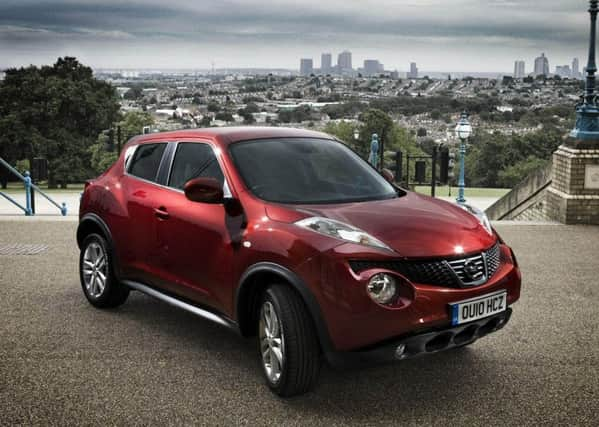Motor trade faces a battle to remain in top gear
This article contains affiliate links. We may earn a small commission on items purchased through this article, but that does not affect our editorial judgement.


One of Britain’s key economic sectors that many Remainers believed would take a battering following last June’s historic vote to leave the European Union was new car sales. Consumer sentiment would be dented, we were warned, and sales would slip into reverse.
However, the latest industry statistics – published yesterday by the Society of Motor Manufacturers & Traders (SMMT) – show those predictions of a car crash were somewhat wide of the mark.
Advertisement
Hide AdAdvertisement
Hide AdIn fact, almost 175,000 cars were registered in the UK last month, a rise of 2.9 per cent year-on-year and the best outcome for a January – not traditionally one of the busiest months for dealerships – since 2005. Private motorists led the growth, registering 76,729 new cars – up 5 per cent. Fleet demand nudged up 1.4 per cent, while business registrations dipped 1 per cent.
The figures come hot on the heels of the news that Britain’s car manufacturing industry enjoyed a record year of exports during 2016 and the best overall production performance for 17 years. More than 1.72 million vehicles were built in the UK last year – up 8.5 per cent on 2015 and the highest figure since 1999. Of last month’s top ten best-sellers in the SMMT report, encouragingly, three were UK-built motors – the Vauxhall Astra and Nissan’s Juke and Qashqai compact SUV models.
The industry may be cruising along comfortably in the outside lane, but there a number of amber lights on the horizon. Consumer confidence could take a hit as the squeeze from rising inflation and muted wage growth takes its toll on “big ticket” purchases. The slump in the pound has already forced UK distributors to hike the prices of imported models, which still make up the bulk of sales here.
There are also concerns that a new credit bubble is building, much of it fuelled by personal contract purchase deals and financing on new cars. The Bank of England has cautioned about the possibility of a hike in interest rates if inflation threatens to gather momentum. Throw in a major overhaul of vehicle excise duty from the start of April, that also sees the introduction of a new luxury levy for vehicles costing more than £40,000, and there is plenty to concern the motor trade in the coming months.
SMMT chief executive Mike Hawes remained upbeat, saying: “2017 got off to a good start in the new car market, buoyed by a great range of new models which are safer and cleaner than ever before.
“After record growth in 2016, some cooling is anticipated over the coming months, but provided interest rates remain low and the economy stable, the market is in a good position to withstand its short-term challenges.”
That cooling effect had been evident at the tail end of 2016 with a year-on-year dip of 1.1 per cent in December.
Advertisement
Hide AdAdvertisement
Hide AdThat did not prevent car sales for the year touching a new record high of 2.69 million, a rise of 2.3 per cent on 2015, but had cast some doubt over the sector’s sustainability heading into the new year.
Howard Archer, chief UK and European economist at forecasting consultancy IHS Global Insight, welcomed the January rebound but warned that 2017 still looked likely to be “a more difficult year” for the industry.
He said: “Consumers seem certain to find their purchasing power being increasingly diluted during 2017.
“Furthermore, a likely weakening economy and more uncertain outlook may well make businesses more circumspect in their car purchases – perhaps taking longer to replace fleets.
“Meanwhile, the sharp weakening of the pound makes it more difficult for car dealers to offer attractive deals on imported cars – with the result that some car manufacturers have raised prices and more increases seem inevitable during 2017.”
Sue Robinson, director of the National Franchised Dealers Association, which represents the interests of operators south of the Border and has a formal association with the Scottish Motor Trade Association, described the figures as “extremely encouraging”, and suggested there could be a rush to the showroom ahead of April’s car tax shake-up.
“The decision of the Bank of England to raise the growth forecast for this year from 1.4 per cent to 2 per cent is a positive sign as, in line with January’s new car market figures, shows that the UK economy has remained stable in the aftermath of Brexit.
“A number of factors including the new and more expensive VED [vehicle excise duty] tax rates coming into effect in April, low interest rates and attractive finance packages will continue to attract new buyers in the upcoming months.”
More of a slow puncture than a blow-out then.